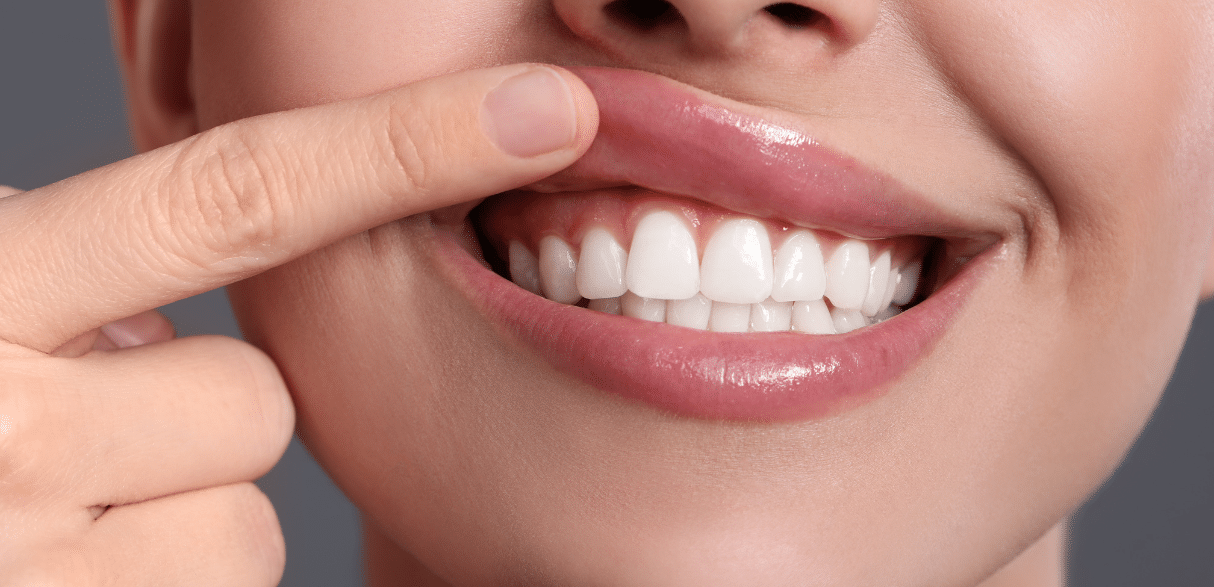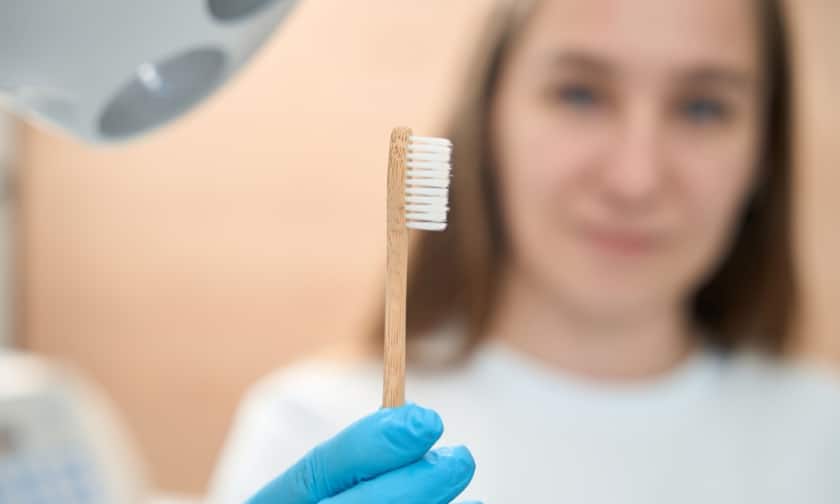Daily Habits for Cleaner and Healthier Gums

Healthy gums are the foundation of a vibrant smile and overall oral wellness. Yet, many people overlook the simple daily habits that keep their gums in top shape. Just like you wouldn’t skip a day of exercise for your body, you shouldn’t ignore your gum care routine.
Small daily actions can make a big difference in gum health and help you avoid serious issues like gum disease or tooth loss.
Incorporating effective habits into your daily routine doesn’t have to be complicated.
By focusing on proper brushing, flossing, and diet, you can maintain clean and healthy gums with ease. This blog will guide you through essential daily habits and provide practical tips to boost your gum health. Whether you’re looking for ways to refine your routine or starting from scratch, these insights will help you achieve a healthier smile and keep those gums in excellent condition. Ensure to visit your dentist regularly for professional dental cleanings.
Let’s dive into the habits that make a significant impact!
Proper Brushing Techniques
The Right Way to Brush Your Teeth
- Choose the Right Brush: Use a soft-bristled toothbrush to avoid damaging your gums.
- Brush at an Angle: Hold your toothbrush at a 45-degree angle to your gums.
- Gentle Strokes: Brush with gentle, circular motions to clean teeth and massage gums.
- Timing Matters: Brush for at least two minutes, twice a day.
How Brushing Affects Gum Health?
- Prevents Plaque Buildup: Regular brushing removes plaque, reducing gum inflammation.
- Reduces Risk of Gingivitis: Proper brushing minimizes the chances of gum disease.
- Improves Freshness: Keeps breath fresh and gums healthy by removing food particles.
Brushing correctly ensures that your gums stay healthy and free from issues like gingivitis. Incorporate these techniques into your daily routine to maintain optimal gum health.
Flossing Fundamentals
Benefits of Daily Flossing
- Removes Food Particles: Flossing dislodges food stuck between teeth that brushing misses.
- Prevents Gum Disease: Removes plaque from between teeth, reducing the risk of gingivitis.
- Reduces Bad Breath: Eliminates bacteria and debris that cause unpleasant odors.
Techniques for Effective Flossing
- Use the Right Amount: Use about 18 inches of floss, wrapping it around your fingers.
- Gentle Movement: Slide the floss between teeth using a gentle sawing motion.
- Curve the Floss: Curve the floss around each tooth to clean under the gumline.
- Don’t Snap: Avoid snapping the floss, which can damage your gums.
Daily flossing complements brushing by ensuring a more thorough clean, leading to healthier gums and a fresher mouth.
Rinsing and Mouthwash
How Mouthwash Contributes to Gum Health?
- Reduces Bacteria: Mouthwash kills bacteria that cause gum disease and bad breath.
- Reaches Difficult Areas: Helps clean areas that brushing and flossing might miss.
- Soothes Inflamed Gums: Provides relief for irritated or inflamed gums.
Choosing the Right Mouthwash
- Look for Antimicrobial Ingredients: Choose mouthwash with ingredients like chlorhexidine or essential oils for bacteria control.
- Avoid Alcohol-Based Mouthwashes: Alcohol can dry out your mouth; opt for alcohol-free versions if you have sensitive gums.
- Consider Fluoride Options: Fluoride mouthwashes help strengthen teeth and protect gums.
Using mouthwash regularly as part of your oral hygiene routine enhances gum health and supports overall oral care.
Healthy Diet for Gum Health
Foods That Promote Healthy Gums
- Crunchy Vegetables: Carrots and celery help clean teeth and stimulate gums.
- Citrus Fruits: Oranges and strawberries are high in vitamin C, which supports gum health.
- Nuts and Seeds: Provide essential nutrients and have a natural cleaning effect.
Foods to Avoid for Better Gum Health
- Sugary Snacks: Sweets and candies can lead to plaque buildup and gum disease.
- Acidic Foods: Frequent consumption of acidic foods like soda can erode gum tissue.
- Processed Foods: High in sugars and additives, which can harm gum health.
Maintaining a diet rich in gum-friendly foods and limiting harmful ones helps ensure your gums stay healthy and resilient.
Hydration and Gum Health
Importance of Staying Hydrated
- Promotes Saliva Production: Adequate hydration stimulates saliva flow, which naturally cleanses the mouth and neutralizes acids.
- Prevents Dry Mouth: Staying hydrated helps avoid dry mouth, reducing the risk of gum irritation and disease.
- Flushes Out Toxins: Water helps flush away food particles and bacteria that can contribute to gum issues.
How Water Helps Maintain Gum Health?
- Cleanses the Mouth: Rinsing with water after meals helps remove debris and bacteria.
- Supports Gum Tissue: Proper hydration keeps gum tissues healthy and resilient.
- Reduces Risk of Gum Disease: Adequate water intake lowers the risk of gum inflammation and infection by maintaining overall oral health.
Drinking enough water daily is essential for healthy gums and overall oral hygiene.
Regular Dental Checkups
Why Routine Visits Are Crucial?
- Early Detection of Issues: Regular checkups help identify and address potential problems before they become serious.
- Professional Cleaning: Dentists perform thorough cleanings that remove plaque and tartar buildup.
- Personalized Advice: Receive tailored recommendations for improving oral health based on your specific needs.
What to Expect During a Dental Checkup?
- Comprehensive Examination: The dentist will check for signs of gum disease, cavities, and other oral health issues.
- Cleaning and Polishing: Includes removal of plaque and tartar, and polishing of teeth for a clean finish.
- X-Rays if Necessary: X-rays may be taken to assess the health of your teeth and jawbone.
Regular dental checkups are vital for maintaining healthy gums and preventing future dental problems.
Additional Tips and Tricks
Other Habits to Improve Gum Health
- Use an Electric Toothbrush: Electric toothbrushes can be more effective at removing plaque compared to manual brushing.
- Incorporate Antibacterial Rinses: Use mouth rinses that contain antibacterial agents to reduce gum inflammation and bacteria.
- Avoid Tobacco Products: Smoking or chewing tobacco can lead to gum disease and slow healing.
DIY Remedies and Their Effectiveness
- Saltwater Rinse: A saltwater rinse can soothe gum irritation and reduce inflammation. Mix one teaspoon of salt in a cup of warm water and rinse.
- Oil Pulling: Swishing coconut oil in your mouth for 10-15 minutes may help reduce bacteria and improve gum health.
- Aloe Vera Gel: Applying aloe vera gel to the gums can help with inflammation and healing. Ensure the gel is free from additives.
Maintaining clean and healthy gums requires consistent daily habits. Proper brushing, regular flossing, and a balanced diet all play crucial roles. Additionally, staying hydrated and scheduling regular dental checkups ensure your gums remain in optimal condition. By incorporating these practices into your routine, you can prevent gum disease and enjoy better oral health. Remember, small daily actions make a big difference in the long run. Prioritize your gum health today for a brighter, healthier smile tomorrow.





